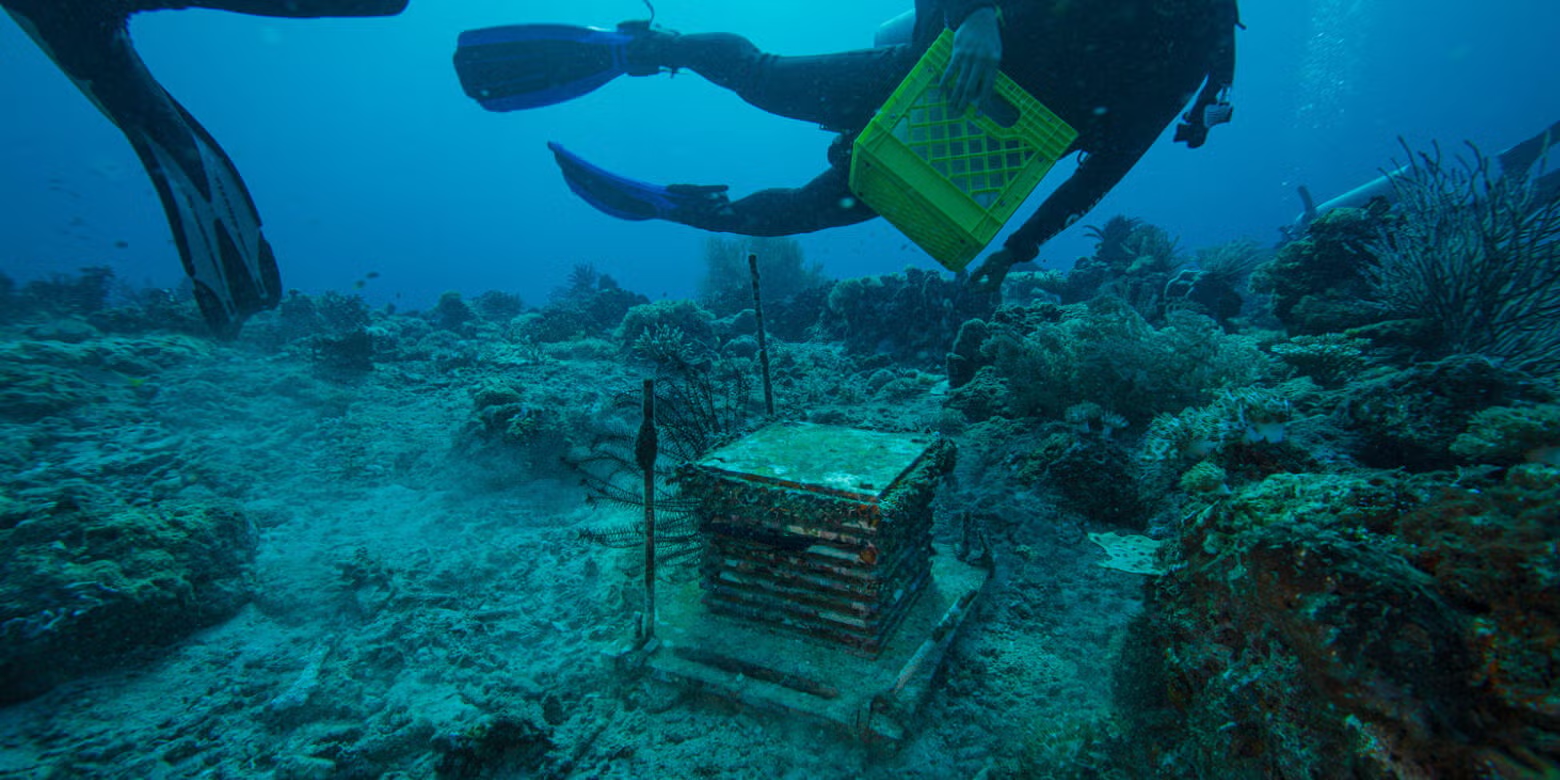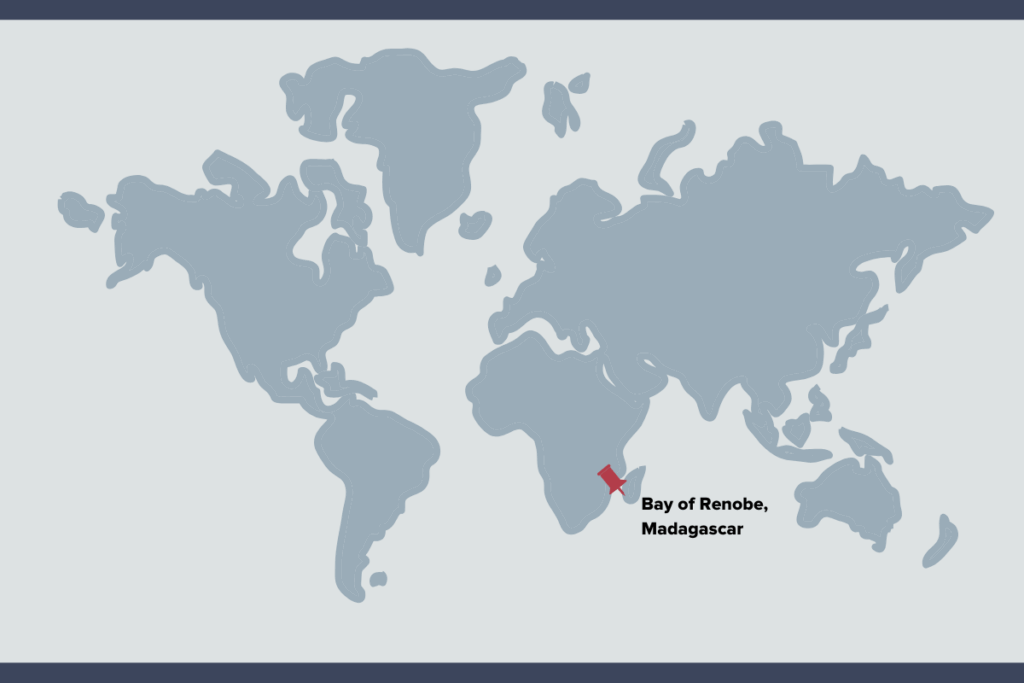Center for Climate, Health, and the Global Environment
We seek climate solutions that can provide for a healthier and more just world today and a livable future for our children.
Building 1, Room 1312
Artificial Reefs to Support Human Nutrition
Impact level: Communities
Location: Bay of Ranobe, Madagascar

What problem are we trying to solve?
Since 1998, the coral reefs in Madagascar have experienced a 30–50% decline in coral cover across the island, with a 20% loss in the last 20 years. Specifically, the coral reefs of the Bay of Ranobe, part of the larger Toliara Barrier Reef system, are under stress due to overfishing, unsustainable tourism practices, and global coral bleaching events. As fish populations decline, local communities, which heavily rely on marine resources, face economic challenges. Moreover, sediment from deforestation has the potential to smother corals, impacting the health of the entire reef ecosystem and potentially leading to increased algal blooms, which can deplete oxygen in the water, harm marine life, and make the water unsafe for people.
What climate and health solutions are we researching?
The Health Impacts of Artificial Reef Advancement (HIARA) project aims to assess the impact of rebuilding coral reefs in Madagascar using new tools to restore biodiversity, build fisheries, and improve human health. The technology uses small structures that gently collect sea creatures from healthy coral reefs and then transfers them to newly built reefs that need to be seeded with diverse marine life. The project also uses innovative artificial coral reef designs that attract sea creatures in the larval stage and protect them while they grow.
Together, these solutions aim to help local fisheries by bringing in more kinds and greater numbers of sea life, which can improve the community’s nutrition and health.The local community is involved in the design, deployment, and monitoring of the project.
What’s the level of impact?
It is estimated that 1.39 billion people worldwide are vulnerable to worsening nutrient deficiencies due to declines in fish. One driver of the decline is the deterioration of coral reef health, because coral reefs play a crucial role in the broader ocean ecosystem. For example, they provide a safe environment for larval marine species as they develop.
Our work aims to test one possible intervention that could improve the health of coral reefs near fishing communities, thereby improving access to nutrient-dense foods for populations that are otherwise at risk of nutrient deficiency. This intervention tackles the issue in southwestern Madagascar, but is applicable to the 100+ countries that have coral reefs.
Who will this research benefit?
The communities living along the Bay of Ranobe will benefit from the increase in marine life. In the long run, the study aims to help all communities that depend on coral reefs as an integral part of their food system.
Who are the collaborators, key partners, and stakeholders?
The local communities of the Bay of Ranobe, Reef Doctor, the Institut Halieutique et des Sciences Marines of the University of Toliara, Madagascar’s Ministry of Public Health, Ministry of Fisheries and Blue Economy, and Ministry of the Environment.
Where is the research happening?

What data resources can people use as a result of this project?
This project will provide evidence to conservation organizations and public health institutions globally who are considering interventions that could benefit both people and nature. People will get access to comprehensive rich data ranging from ecological, fisheries, and health data such as dietary intake, socio-economic status, mental health (depression and anxiety symptoms), anthropometric, blood pressure, mercury, benthic mapping, water quality, sedimentation, reef assessment, benthic cover, macro-invertebrate population, and catch assessment.
Learn more
To get in touch with the research team, contact Anna Miller.